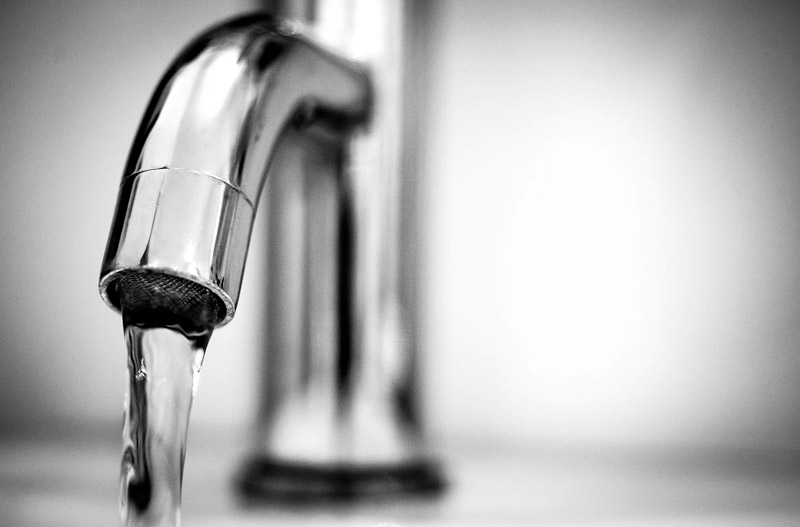Top Health & Safety Tips for Plumbers
 Safety Issues
Safety Issues
Plumbers may be one of the highest paid professionals in the trade industry but are more exposed to potential hazards and accidents. Like other professions such as builders, electricians and concreters, plumbers also battle with workplace risks.
Some prominent ones include:
- Exposure to toxins
- Slips, trips and falls
- Electric shocks and burns
- Manual handling injuries
- Eye hazards
Biohazard waste such as sewerage, mould and bacteria can also have a negative impact on your health. Without proper training, equipment and clothing, you may endanger not only your life but also contractors around your work area.
Whether it involves a simple pipe repair or water supply installation, your safety shouldn’t be compromised. Here are some plumbing safety tips to help prevent accidents around your home or at work:
Pick your hand wear.
Generally, your hands get the majority of plumbing work. Covering them with either rubber or leather gloves can keep them from chemicals and heat exposures. Heat-insulating gloves are recommended when flame or soldering work is involved.
Before accepting any jobs, it’s important to understand the scope of work to help prepare the needed risk assessment documentation and also the correct hand wear to use. If the process requires the use of handheld tools such as pipe wrenches and shovels, wearing protective gloves can be an option. However, taking note of this preventative measure can help safeguard your great asset.
Will you be needing power tools like circular saws and propane torches to accomplish the job? Using bare hands may be viable, but for your safety and convenience, it’s good to have your hands fully protected. You’ll thank these hand gloves when you do.
Mind your footwear
You may have the best hand-eye coordination and balancing techniques, but without appropriate footwear, you’re bound to potential accidents.
Wet environments require a plumber to wear a pair of boots with non-slip soles. When working at heights and confined areas, it’s also safe to use sturdy and non-skid shoes to avoid falling incidents.
Put on your headgear
Wearing a pair of gloves and sturdy shoes won’t guarantee complete protection. Hard hats are recommended especially when doing large projects. A durable headpiece can keep you from acquiring head injuries caused by falling objects or solid materials.
Face protection is also good to consider. Make sure to wear respiratory masks when dealing with human waste, rodent droppings and other hazardous materials that could target your health.
Prepare your eyewear
Eye injuries caused by chemical splashes, flying particles and falling objects can both affect your personal and professional lifestyle. Wearing safety goggles can protect your eyes especially when using high-pressure water jets to clean drainage pipes. Likewise, if you’re dealing with hot water pipe repairs or maintenance, covering your eyes with proper eye shields can save you from acquiring extreme injuries.
Whether you’re involved with simple cleaning or installation jobs, wearing safety spectacles can keep you from dust and debris as well as material handling failures.
Wear your earpiece
Just as your eyes need protective coverings, your ears also require protection. Hearing loss is one of the recorded safety hazards for plumbers. The World Health Organization’s Protection of the Human Environment released a 2004 report stating that 48 percent of plumbers suffer from hearing loss.
Wearing earplugs is essential especially when the job requires the use of extremely buzzing tools and procedures. This is common to a local plumber working in construction and other non-residential areas.
Workplace Safety Tips
- Get proper training to increase your awareness
- Refer to safety data sheets – COSHH risk assessments
- Keep your personal protective equipment in good condition
- Follow safety orders and rules
- Clean tools and equipment on a regular basis
- Dispose gloves and clothing when necessary
- Disinfect protective equipment from head to toe
Responding to your client’s urgent need is important, but your safety must be paramount.
It means that only qualified plumbers are expected to deal with any plumbing works to minimize the risks.
Do your part to protect your yourself and the work areas around you.
Take frequent breaks, drink plenty of water and ensure sufficient rest when necessary.
Most importantly, invest in and wear high-quality personal protective equipment to help lessen plumbing-related incidents and be able to go home safe back to your family.
When did you last check your protective clothing and equipment?
3 Different Types of Gloves That Every Plumber Needs
As you probably already know, a plumber’s number one asset is his hands, and as such, you should be doing everything you can to keep them (and yourself) safe while on the job. Gloves are an essential part of this equation, as they are often a plumber’s first line of defence against the various health and safety hazards they run into on a daily basis – things like chemicals, heat, sparks, or flames when soldering or welding, and raw sewage.
This may seem straightforward enough, but there are still a lot of plumbers who feel that gloves restrict their range of motion, and because of this, stay away from them altogether. While it’s true that some gloves do make a job more complicated or frustrating than it has to be, the risks that come with not wearing gloves should be enough to convince any plumber who enjoys his health to start wearing them. Not all gloves are made the same however, so we did our own research on the three gloves that are most useful to a plumber.
Latex or Nitrile gloves
These thin, moisture resistant gloves are a must have for any plumbing jobs that include exposure to infectious, and other biologically hazardous materials. Remember to wear them on simple jobs like drain cleanings, and during the more complex ones, like installing a new sewer systems, as both of these projects involve handling raw sewage. You can also use Nitrile gloves for the same instances, if you’re allergic to latex.
Tip: Most plumbers agree that wearing a pair of these gloves under their normal leather “work” gloves offers better protection.
Drain Cleaning “Work” Gloves
Drain cleaning gloves can be made from leather, PVC (Rubber), or synthetic materials, and are the most commonly used type of glove among plumbers. They offer added protection against the cuts and abrasions that commonly occur when handling a metal drain snake, as well as protection from the sewage and other bodily fluids that follows the snake up. Leather-based or synthetic gloves should be utilized whenever the job calls for physical labour, for increased grip and protection.
Tip: It’s a good idea to wear latex or nitrile gloves under these, and it should be noted that rubber gloves are great for avoiding chemical-related injuries, and offer the most protection when working with commercial-grade solvents.
Welding Gloves
Gloves with a high level of heat resistance are crucial for plumbers that do any kind of welding or soldering work on a daily basis. Typically, welding gloves are made of thick leather, have extra long cuffs to prevent spatter burns, and offer varying levels of fire resistance.
Tip: When choosing a pair of welding gloves, make sure that the gloves you choose match the type of welding work that you will be doing, as different types of welding and soldering come with different temperatures.
Wearing the wrong gloves or no gloves at all is the perfect way to injure your hands on a job. It’s a fact that using gloves on any plumbing job is important, but what’s not so obvious is just how important choosing the right kind of gloves for each job can be.
Please contact Joanne if you need any further information joanne@chestnutassociates.co.uk


